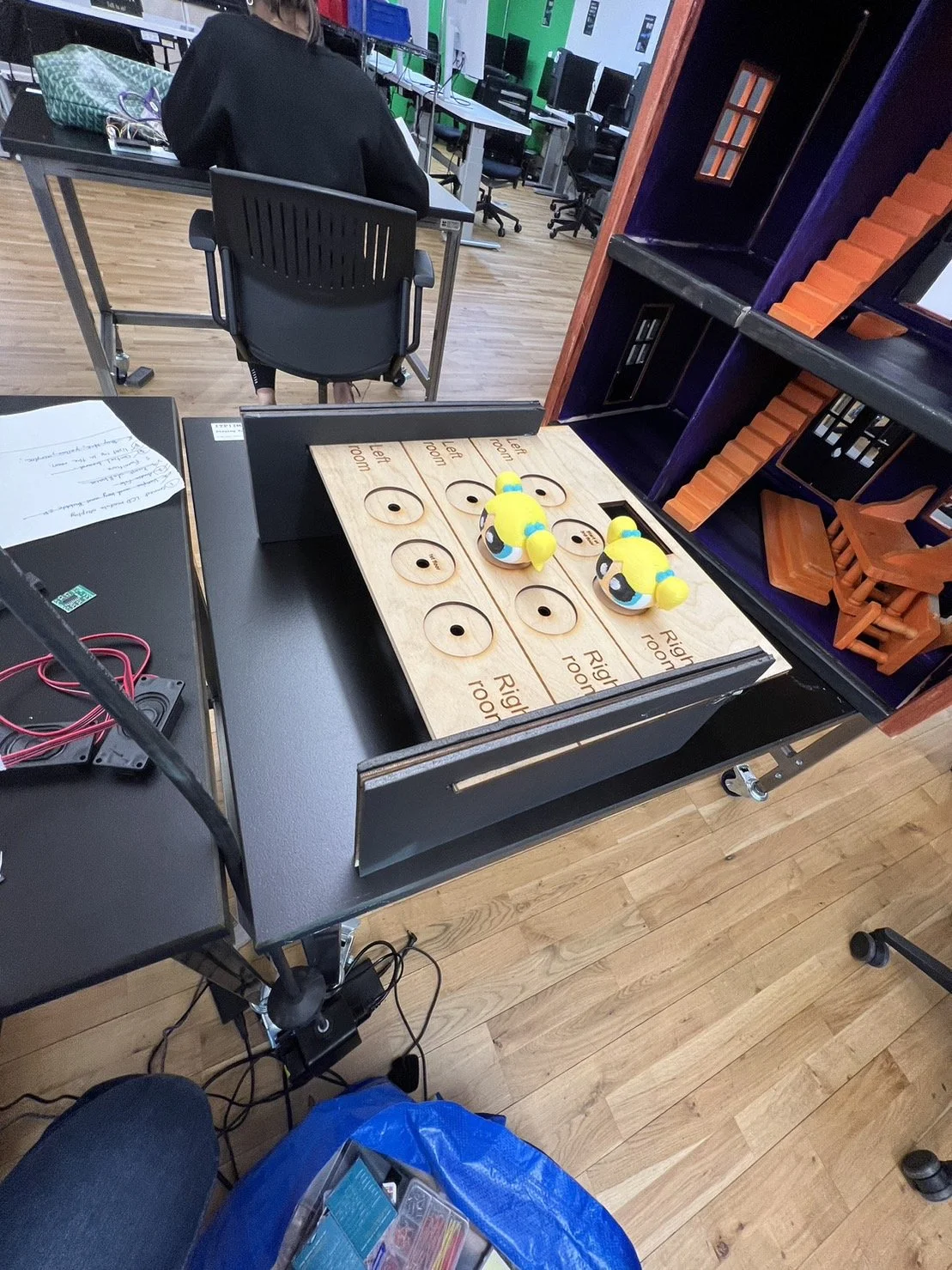
Midterm project - Final
Haunted Dollhouse
Collaborated with Fatima Akhai
Help Bubble escape a haunted dollhouse
The game involves a 3D figure of Bubble that interacts with the dollhouse using a magnet sensor. The experience includes audio cues, screen prompts, and dynamic lighting effects to create a spooky atmosphere
How’s it work?
Use magnets as the digital input and expose the light, audio, and movement (servo) as outputs. In this interactive experience, the player utilizes a digital input mechanism - a magnet - to navigate through a virtual environment. As the magnet is moved, it triggers a series of responses from the system.
Interaction
The Interactive Fun
The heart of the game is how you play it. You use a magnet as a digital input to control Bubble's moves in the dollhouse. Move the magnet, and things happen!
In "Bubble's Adventure," you play as Bubble, trapped in a haunted dollhouse. Your goal? Escape! But it won't be easy. You'll need to find keys, manage your battery life, and make decisions that shape Bubble's fate. All of this happens in a spooky atmosphere filled with surprises.
Here's how it works:
1. Lights: The dollhouse lights up as you move the magnet. It guides you through the game and adds to the spooky atmosphere.
2. Sounds: The game has eerie sounds like creaking floors and whispers. They respond to what you do, making the game even more thrilling.
3. Movement (Servo): Doors open and close, all thanks to the magnet. It's like magic! These movements are controlled by servos, making the game feel real and interactive.
Diagram
The Technical Challenge
Conclusion
"Bubble's Adventure" is a testament to the fusion of technology and storytelling. By utilizing magnets as digital inputs and exposing light, audio, and servo-controlled movement as outputs, the game offers players an immersive and spine-tingling experience within the haunted dollhouse.
Technical coding
Arduino was employed to control the interactive components of the game. This included managing the input from the magnet sensor and orchestrating the corresponding output actions, such as controlling lights, triggering audio effects, and coordinating servo-driven movements within the dollhouse.















